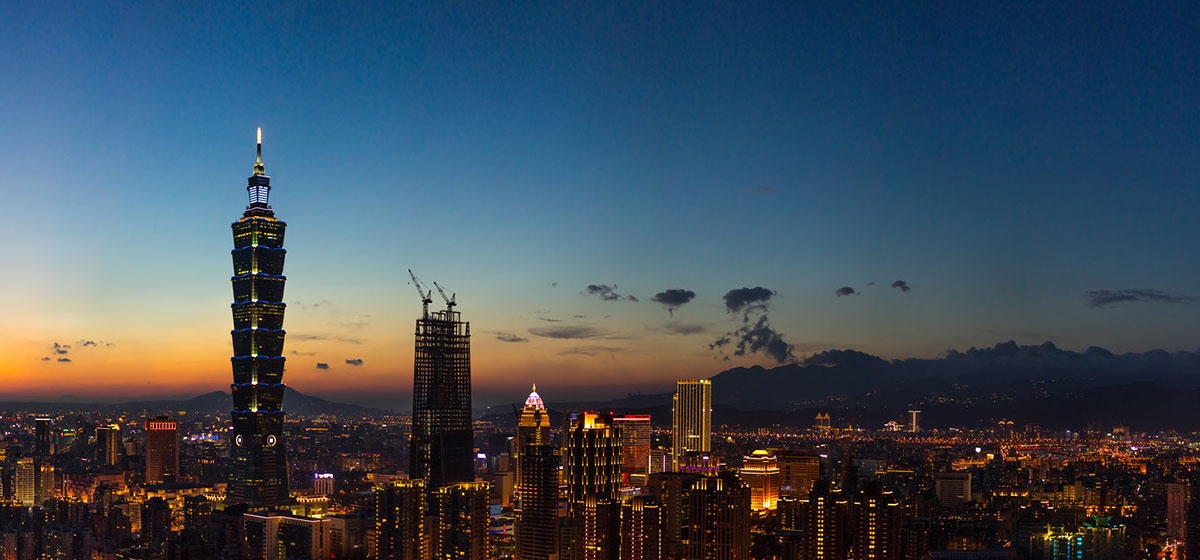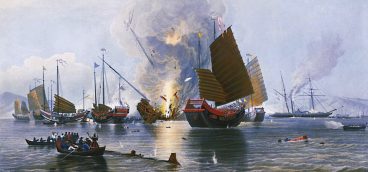A New Taiwan Policy

The final leg in our Cold War II stool is the containment of China diplomatically. To make the point that China no longer has a free pass, the first step in the West’s diplomatic offensive needs to be focused on Taiwan. Assuming that the West’s military containment of China has succeeded in confining the country inside its own borders, Taiwan needs to be, in effect, diplomatically rehabilitated.
Taiwan should be reintroduced to the international community as a vigorous free market democracy. Although Beijing will view this as a hostile act, it needn’t be presented that way. Instead, a sovereign, confident Taiwan with many democratic allies will be in a better position to negotiate a so-called reunification with the mainland.
Clearly, China’s bullying tactics have gotten it nowhere with Taiwan for seven decades. Time to wake up and smell the coffee, Beijing.
A less fraught, but much tougher, initiative will be required to create and hold together an entire series of alliances globally that can contain China on the diplomatic front as well as (one hopes) it has been contained on the military and economic fronts.
One reason this effort will be so difficult is that we live in an era where global diplomacy has gotten a (partly deserved) bad name. For three decades U.S. diplomacy has focused on imposing liberal democracy on peoples who had no interest in it, on remaking the world, in effect, in our own image.
Looking forward, the U.S. needs to be far more realistic in its foreign relations, maintaining our strength but using that strength sparingly, organizing alliances rather than going it alone, proceeding, in short, less arrogantly and more prudently.
As populism continues to grow around the world and as globalism continues to retreat, diplomacy will become vastly more complicated at exactly the time when diplomatic skills are least respected in America and when the U.S. State Department has been virtually hollowed out. All this needs to change.
It’s entirely possible for the U.S. to engage in much tougher-minded diplomacy that is also skilled diplomacy. But that kind of approach can only happen if diplomatic containment is part of a broader military and economic containment of Beijing.
In addition to the Taiwan question, U.S. diplomacy should also be focused on East Asia and NATO.
Although military containment will have to take the lead in East Asia – especially the East and South China Seas – vigorous diplomatic efforts will also be needed. Specifically, the U.S. needs to work closely with neighboring countries in East Asia whose combined efforts, backed by the U.S., will prove much more effective in containing Beijing than U.S. military efforts alone.
Already Western-style democracies like the U.S., Canada, the UK, New Zealand and Australia have stepped up military activities in the Sea of Japan and the East China Sea, mainly to enforce sanctions against North Korea. Assistance has been provided, albeit on a lesser scale, by Germany, Japan and South Korea.
That is all well and good, but the loose coalition just mentioned could give the impression that the West is interested only in freedom of navigation for its own purposes. Instead, the coalition should be expanded to include threatened countries like Vietnam and the Philippines, perhaps even Malaysia, Indonesia, Taiwan and India.
More controversially, it would be useful to refocus NATO away from its obsession on Russia and toward Europe’s real threat – Beijing. For one thing, it was NATO’s expansion right up to the Russian border that heightened Russian anxieties and led directly to the seizure of the Crimea and to continuing Russian mischief-making in the Ukraine.
Lightening up on the pressure on Russia, and making it clear that, at least as regards Moscow, NATO’s focus is purely defensive, may ease tensions in Eastern Europe and also, perhaps, help drive a wedge between Russia and China. And after all, the Russian military is a mere shadow of the former might of the USSR and its economy is smaller than Italy’s.
Regarding China, the EU is already getting religion on the subject. So profound has been the change in the EU’s attitude toward China that Andrew Small, writing in Foreign Affairs, recently described it as a “revolution.”
Europe’s new concerns are driven by the flood of Chinese imports, worries about Chinese espionage (via Huawei and many other channels), fear of Chinese control of major European tech firms, anxiety over the Belt and Road Initiative, China’s attempts to divide European nations, and, perhaps most important of all, outrage at China’s increasingly tyrannical government and the export of tyranny.
The trouble is, the EU has so many internal problems that, despite good intentions, there is little hope for a united EU/broader Europe approach to containing China unless the U.S., via NATO, drives the process.
Note that this may require the U.S. to stop complaining about the EU countries’ piddling contributions to the mutual defense effort. Once NATO refocuses on China, it will become clear soon enough that beefing up Europe’s defense budgets isn’t just a matter of equity.
In this series of posts, which are (finally!) coming to an end, I have argued that the West has been hopelessly naïve about China and that, as a result, we have frittered away the better part of three decades as Chinese power and influence have grown mightily.
My solution is Cold War II – an attempt to contain Chinese ambitions militarily, economically and diplomatically. Cold War I is an obvious template, but it needs to be modified to suit contemporary dangers and the considerable differences between modern China and the former Soviet Union.
The effort will be expensive, onerous, protracted, and, in all likelihood, somewhat economically injurious. It’s not pleasant to contemplate, but the only are options are war or surrender.
Next up: AONE and Me





